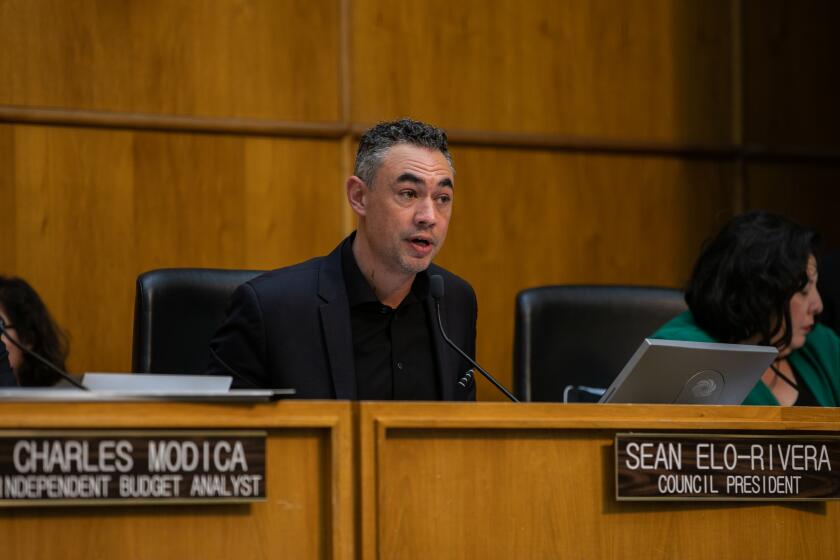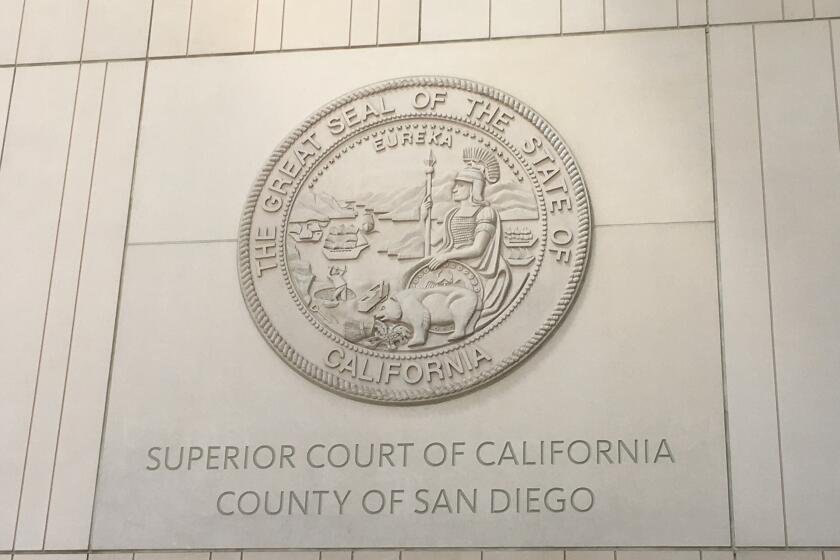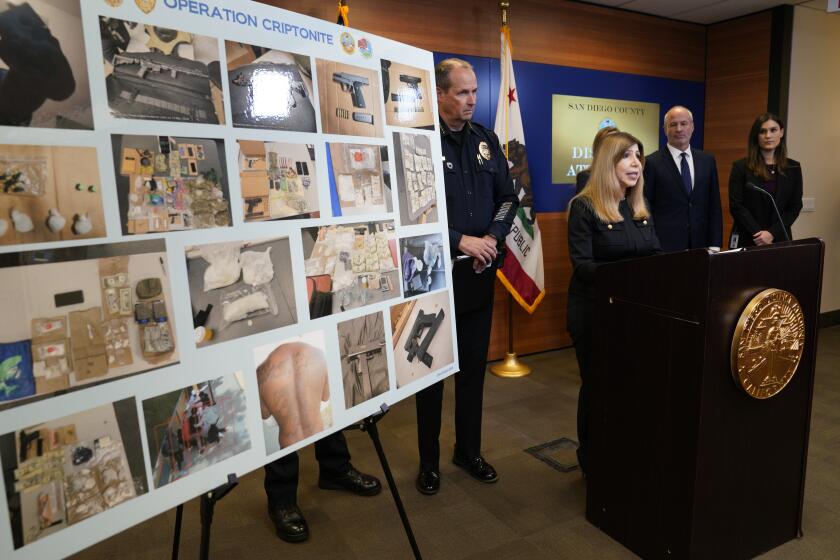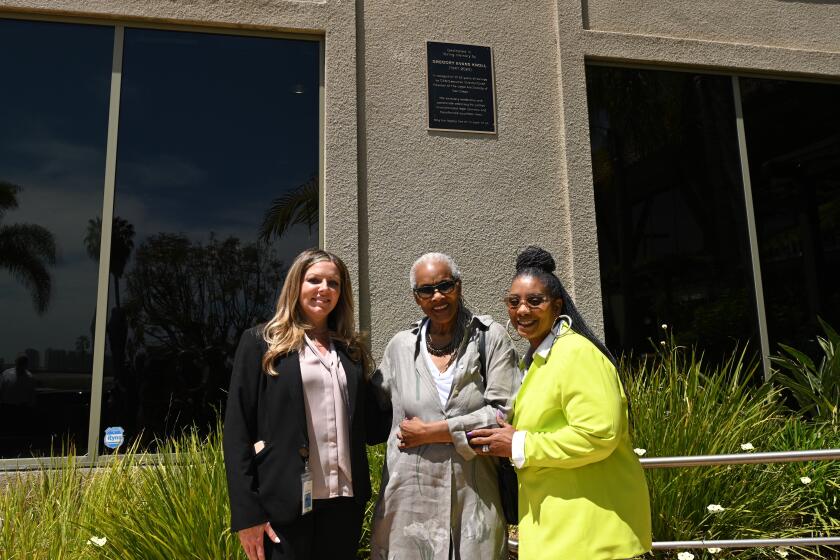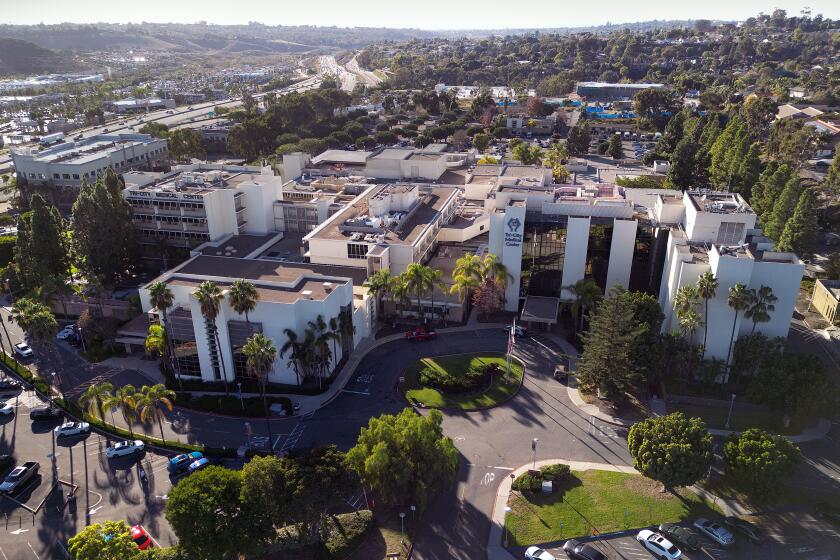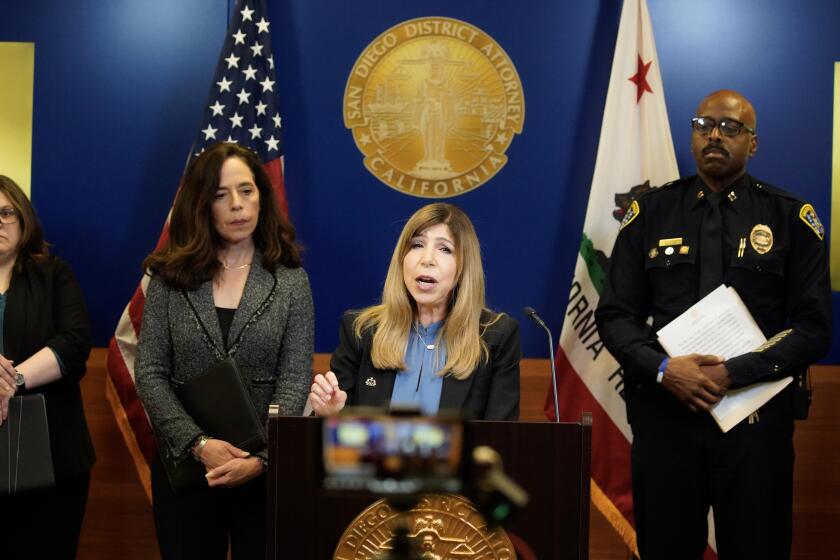Democrats fail to broker compromise on low-income housing law
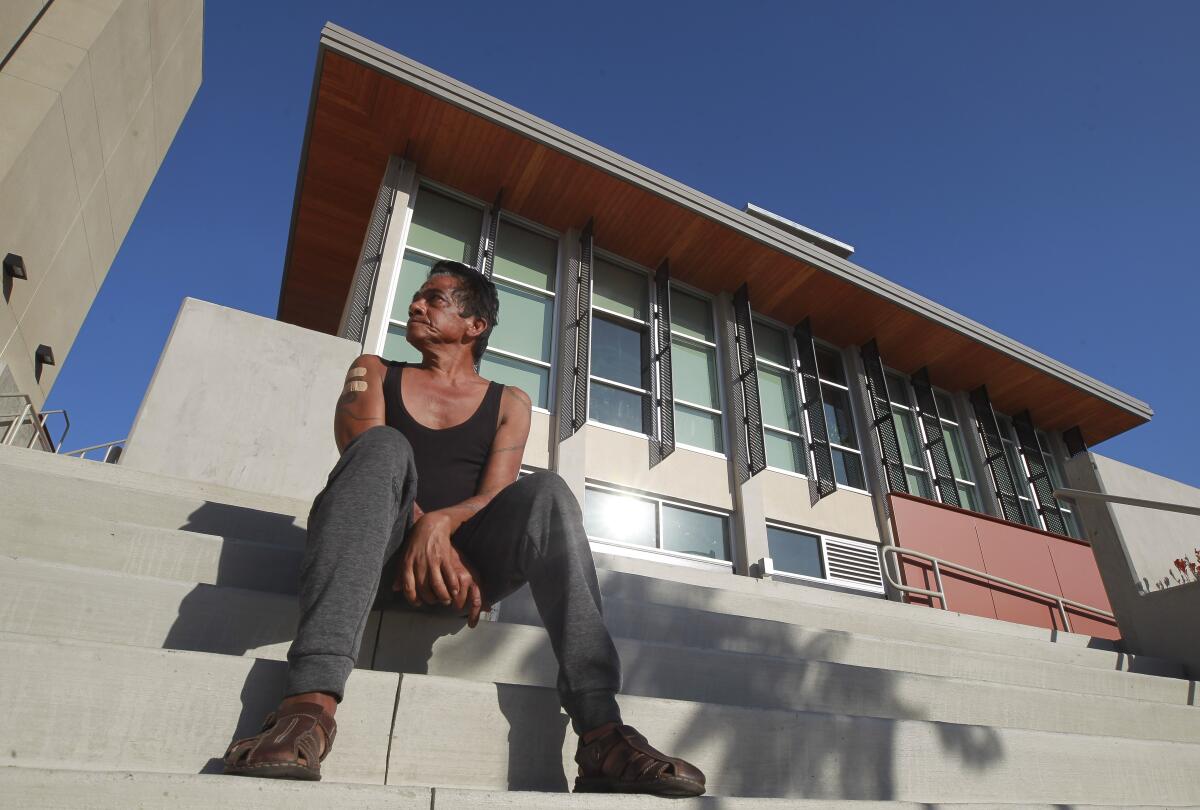
Democrats on the San Diego City Council failed Tuesday to agree on a compromise that would have revived proposed city regulations requiring housing developers to build more low-income units.
Mayor Kevin Faulconer last month vetoed those regulations, which the City Council adopted on Sept. 17 in a 5-4 vote with support from five of the council’s six Democrats.
A bill aiming to increase low-income housing construction would actually reduce it, mayor says
Because six council votes are needed to override a mayoral veto, Democrats on the council have been lobbying the lone Democratic holdout, Vivian Moreno, to support the proposed regulations.
On Tuesday, they failed to get Moreno’s support in a vote to override Faulconer’s veto.
Council President Georgette Gomez, a Democrat, then proposed an amended version of the proposed regulations as a compromise aimed at securing Moreno’s vote.
But the proposed amended regulations only passed 5-4 without support from Moreno, making them vulnerable to an almost certain mayoral veto next month.
The proposed compromise would allow developers to gear low-income units for people making slightly more money than the original proposal, but it also would require developers to pay higher fees if they choose not to build low-income units as part of a project.
The original proposal would have required developers to reserve at least 10 percent of a project’s units for residents making less than 50 percent of the area’s median income. The compromise would soften that by making the income qualifications 60 percent of the area’s median.
The deal, however, would increase a penalty fee for developers who opt against including any low-income units.
The fee, which is now $12.73 per square foot of a project, would have increased to $22 under the original proposal. Under the compromise proposed Tuesday by Gomez, the fee would become $25.
Since the summer, leaders of the local business community have been lobbying for a fee of $18 as a compromise.
Moreno didn’t explain her decision not to support the compromise during a public hearing that preceded Tuesday’s vote. In her only comments, she expressed support for Gomez’s proposal to soften the income requirements.
Morena has repeatedly said she believes the original proposal would have the unintended consequence of reducing construction of low-income units. She said Tuesday that she believes shifting the income level to 60 percent of the area’s median would successfully boost construction of low-income units.
Moreno did not comment on Gomez’s proposal to increase the penalty fee from $22 per square foot to $25 per square foot.
Supporters of the legislation say San Diego’s housing crisis demands aggressive action. They acknowledge the proposal would shrink profit margins for developers but dispute that it would stifle construction.
Opponents, including Mayor Faulconer, say economic analysis shows the regulations would curtail production of low-income housing units by discouraging developers from building new projects at all.
The city’s existing inclusionary policy, which dates back to 2003, requires developers to make 10 percent of the units in a housing project affordable to families making 65 percent of the median income.
Each of the recent proposals to update the legislation would give developers alternative ways to comply. Those include rehabilitating old housing in the city, building low-income units at a different site than the main project, or dedicating land for affordable housing.
The latest proposed compromise, the one Gomez unveiled Tuesday, is expected to come before the council next month.
Top headlines by email, weekday mornings
Get top headlines from the Union-Tribune in your inbox weekday mornings, including top news, local, sports, business, entertainment and opinion.
You may occasionally receive promotional content from the San Diego Union-Tribune.




